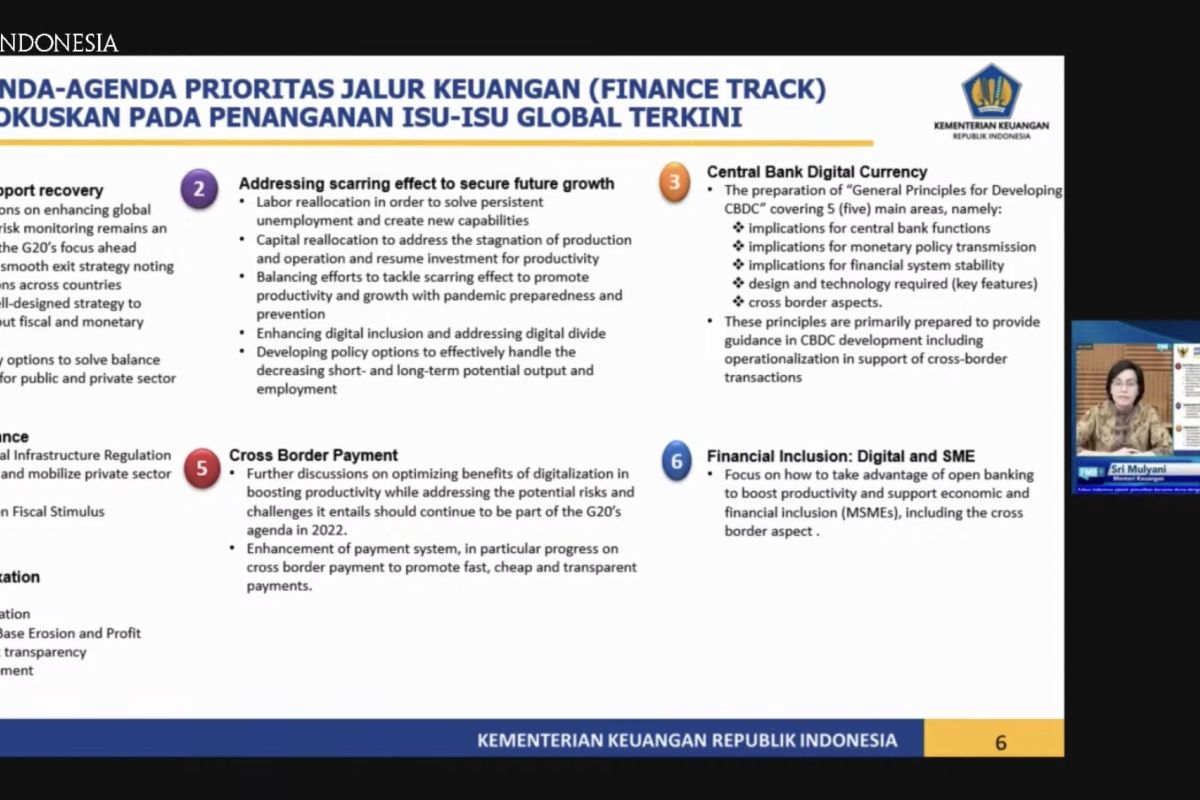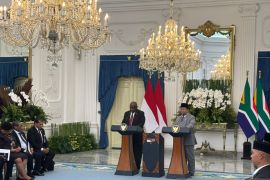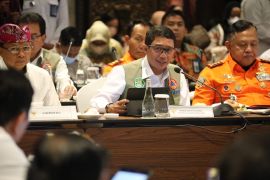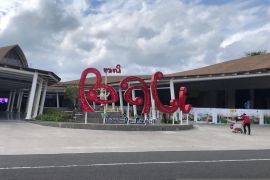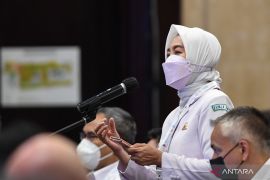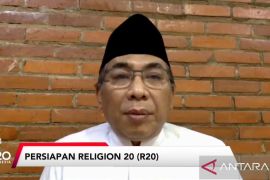The first one, she explained, is coordination on global policies to recover the economy, including on the exit policy, or the gradual and coordinated lessening of extraordinary and unsustainable macro policy interventions by G20 member countries.
She further said that the exit policy will assist economic growth in each country, as well as globally, and at the same time, ensure that it becomes more sustainable.
"This is not an easy endeavor as every country has different conditions," she said.
The second agenda is regarding the COVID-19 impact on health and economic sectors, which has led to supply disruption and corporations struggling with their balance, she informed
"Discussions on productivity and economic recovery, as well as how policies are designed will be the second agenda in the finance track," she said.
The third one is the central bank digital currency (CBDC), she said.
Within the agenda, there will be discussions on the formulation of CBDC development, covering five main sectors, which include implications towards central bank functions, implications on monetary policy transmission, implication towards the financial system's stability, design and technology needs, and cross-border aspects, she added.
Sustainable finance is fourth in the agendas and covers the roles of the financial sector in supporting important agendas at the global level, including climate change and green finance facility that is aimed to create green and sustainable economic transformation, she said.
Related news: G20 - Indonesian minister presses for equality in global health system
"There will also be discussions on how digital infrastructure regulation can elevate leverage and mobilize private sector investment," she explained.
The fifth agenda is on cross border payment and will focus on taking advantage of the optimization of digitalization for boosting productivity, and at the same time, address risks and challenges that may emerge, she added.
This will also touch on the enhancement of payment systems, especially on cross-border payments to promote speedy, affordable, and transparent payments, she informed.
The sixth agenda is financial inclusion, which includes SMEs, focusing on the use of open banking to encourage productivity and support economic and financial inclusion, including on cross-border aspects, the minister said.
“This is a very important and relevant topic for Indonesia. This will be a priority in the G20 discussions," she stated.
The last agenda is the progress and implementation of the approval and development of global taxation principles, including the ones related to tax incentives, she said.
There is also digitizing taxation, tax avoidance practices, especially related to base erosion and profit shifting (BEPS), tax transparency and tax certainty, she noted.
"Indeed, this is one of the important priorities for Indonesia, which is currently carrying out tax reform," she explained.
Related news: Indonesia unveils its strategies in chairing 2022 G20 presidency
Translator: Astrid FH, Aria Cindyara
Editor: Rahmad Nasution
Copyright © ANTARA 2021
